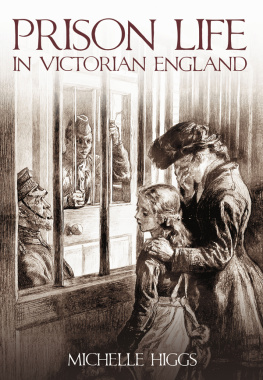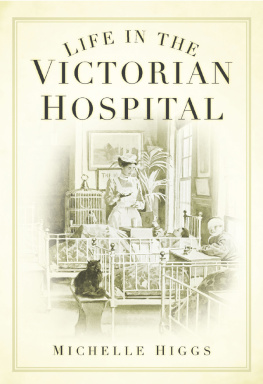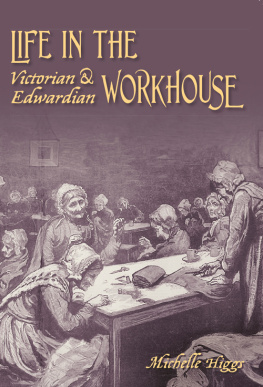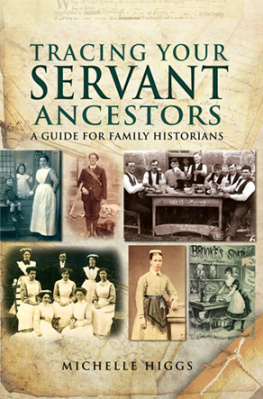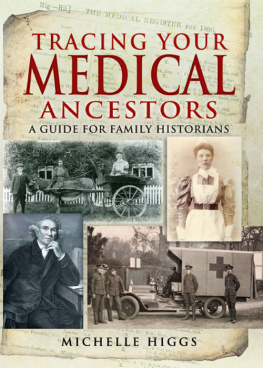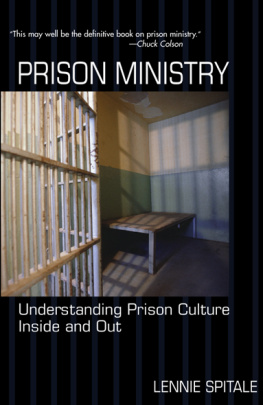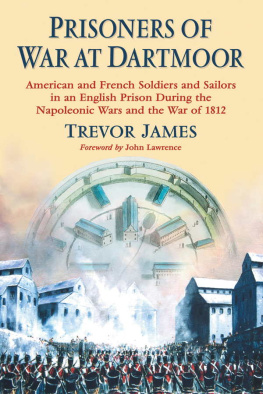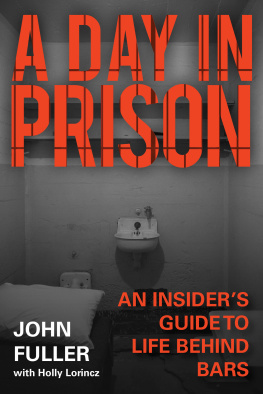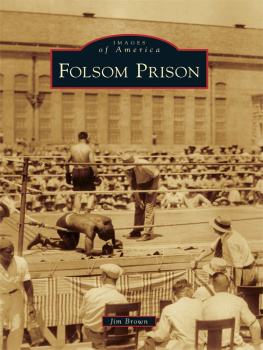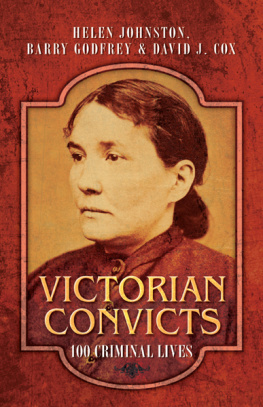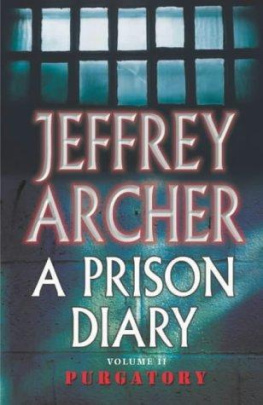

First published in 2007 by Tempus Publishing
Reprinted in 2013 by
The History Press
The Mill, Brimscombe Port,
Stroud, Gloucestershire, GL5 2QG
www.thehistorypress.co.uk
This ebook edition first published in 2017
Michelle Higgs, 2007
The right of Michelle Higgs to be identified as the Author of this work has been asserted in accordance with the Copyrights, Designs and Patents Act 1988.
This ebook is copyright material and must not be copied, reproduced, transferred, distributed, leased, licensed or publicly performed or used in any way except as specifically permitted in writing by the publishers, as allowed under the terms and conditions under which it was purchased or as strictly permitted by applicable copyright law. Any unauthorised distribution or use of this text may be a direct infringement of the authors and publishers rights, and those responsible may be liable in law accordingly.
EPUB ISBN 978 0 7509 8474 4
Typesetting and origination by Tempus Publishing.
eBook converted by Geethik Technologies
CONTENTS
ACKNOWLEDGEMENTS
While writing this book, I received help and advice in locating information and illustrations from a number of different sources. I would like to express my gratitude to the following:
The staff of Gloucestershire Archives, Lancashire Record Office, Worcestershire Record Office, the County Record Office Cambridge, Birmingham City Archives, Birmingham Central Library and The National Archives; Karl Vaughan, Mary Wall and Alan Longbottom.
Special thanks are due to Garry Morton of the Wandsworth Prison Museum for his identification of uniforms and places in specific photographs and for his advice about all aspects of prison life.
I would also like to thank the following people who were so generous with their time and their research:
Carolyn Alty, Anthony Baker, John Brake, Noelene Cummins, Sharon Floate, David Fry, Jim Halsey, Roger Harpin, Caroline Haycock, Christopher J. Hogger, Lyn Howsam, Wendy Corbett Kelley, Heather Leonard, Lyn and Jim Owers, Dominic Pinto, Brian Randle, Rita Richardson, Kenneth Scott, Peter Smith, Patrick Thomas, Graham Wells and Brian Wollaston.
Finally, I would like to thank my husband Carl for his patience and forbearance, and my family and friends for their encouragement during the writing of this book.
ILLUSTRATIONS
Every effort has been made to trace copyright holders of images included in this book. The publishers would be grateful for further information concerning any image for which we have been unable to trace a copyright holder.
INTRODUCTION
In December 1857 at the Warwick Winter Assizes, George Beasley, a thirty-four-year-old brick maker from Birmingham, was convicted of stealing lead fixed to a building. He had a previous conviction so he was sentenced to four years penal servitude (imprisonment with hard labour) in a convict prison. George was released in March 1861 after serving three years and three months of his sentence. He had earned nine months remission from his sentence for good behaviour.
Those sentenced to imprisonment in Victorian local prisons had a much harder time as they had no prospect of reducing their sentences with good behaviour. In April 1897, William Anderson, a sixty-year-old labourer, was convicted at the Wigan Sessions of two offences of stealing a jacket. He was given two separate sentences of eighteen months hard labour to run concurrently in a local prison. Like George Beasley, William had experienced sentences of penal servitude and he would undoubtedly have preferred it to imprisonment in local prisons.
In the nineteenth century, as George Beasley and William Anderson discovered, the experience of a man or woman convicted of a crime and sent to an English prison differed significantly, depending on which prison he or she was sent to. Before 1877, those, like George Beasley, who had committed a serious crime or who were convicted of several offences and were serving out long sentences of three years or more in a convict prison, were more likely to experience cleaner accommodation, better living conditions and more humane treatment. By contrast, at local prisons, in which shorter-term sentences were served, standards of accommodation and sanitation were far lower and treatment, particularly in terms of the hard labour prisoners were expected to undertake, was often more severe.
The reason for this was partly historical. Convict prisons had been built, funded and run by the government from their inception. Local prisons did not come under government control until 1877 and, until then, were run by justices for each county. They often accommodated their prisoners in eighteenth-century buildings which were no longer fit for purpose. In local prisons, sentences could be as little as a few days up to a maximum of two years, although this maximum was rare. With so little time, local prison staff had no chance to get to know their charges as they could in convict prisons. No local prison was the same as the justices in each county might have different ideas about the purpose of prison. If they saw it as a deterrent, treatment was necessarily harsh. If it was seen as an attempt to reform prisoners, more emphasis might be placed on religion and education.
There were also stark differences between conditions and treatment at convict prisons such as Pentonville and Millbank, as reported by Charles Dickens in 1850. Dickens commented that In no other country but this does Justice blind as she is administer cocoa and condign misery to the same degree of crime with the same hand.
If the Victorian English prison was so harsh and severe, why were there so many reports of petty criminals repeatedly re-offending to ensure they were convicted and sent to prison again? The sad truth must be that they were willing to exchange their liberty for better food, accommodation and care than they had at home. A similar motive inspired countless workhouse inmates and vagrants to deliberately destroy property or refuse to work in order to get sent to prison. The prison diet was arguably more generous than that of the workhouse.
The differences between convict and local prisons extended to the pay and working conditions of the staff. Local prison officers were paid significantly less and endured less favourable working conditions than their convict prison counterparts. This disparity continued right up to the end of the nineteenth century.
This book has been written to describe what life was really like in prison for the Victorian convict or prisoner, and also for the prison officers who looked after them. Using original prison records, contemporary sources and testimony from convicts, prisoners and prison officers, the book examines every aspect of the Victorian English prison to bring this fascinating period of social history to life.
1
THE COURT SYSTEM AND SENTENCING
In the nineteenth century, anyone charged with a petty criminal offence could be tried locally by a Justice of the Peace at the monthly Petty Sessions or at the Quarter Sessions held four times a year at Epiphany, Easter, Midsummer and Michaelmas. This is the equivalent of todays magistrate court.
More serious criminal offences such as murder, rape and burglary were referred to the Assizes. England and Wales was split into regional circuits and two or three times a year, royal justices visited each circuit to hear the most serious criminal cases.
Next page
